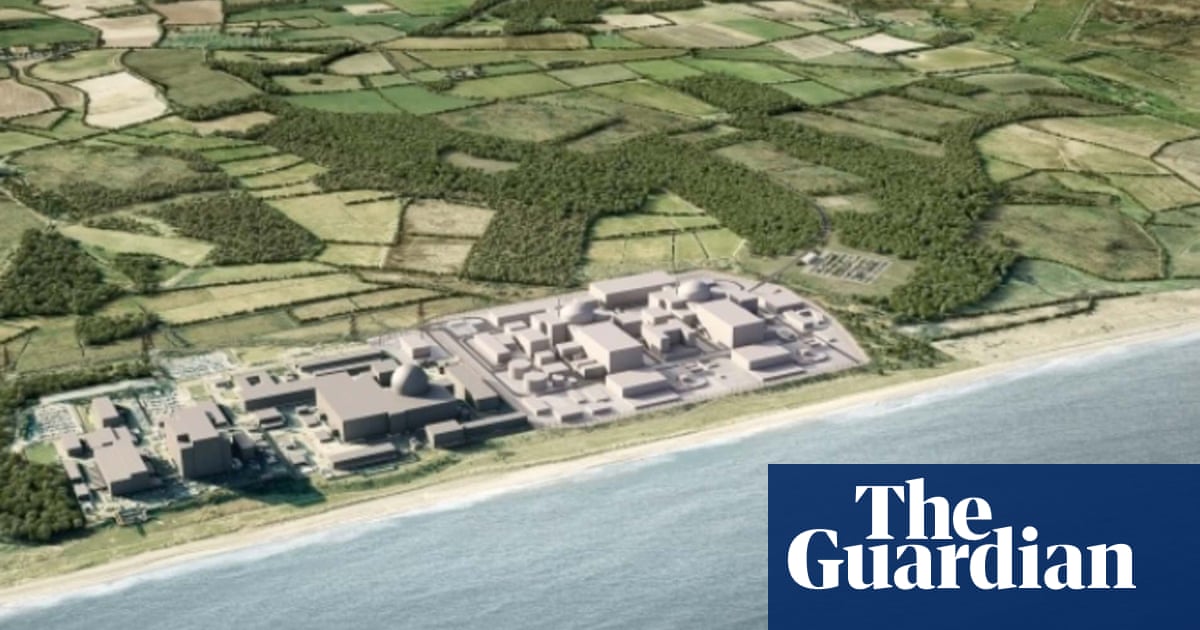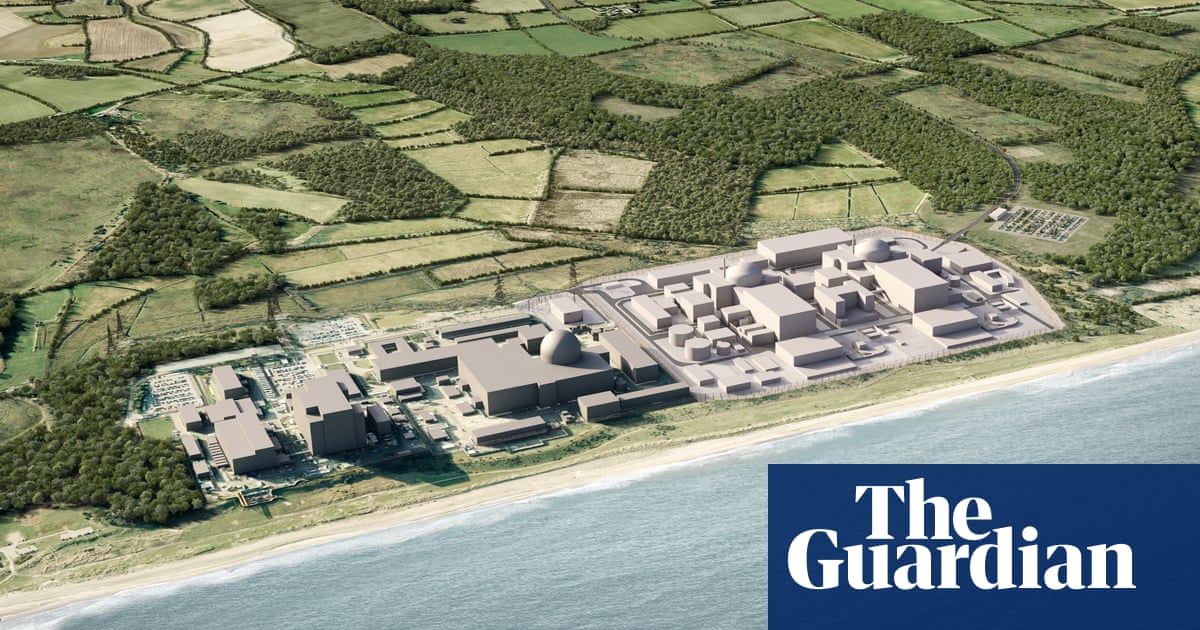
Prospective investors in the proposed Sizewell C nuclear power plant in Suffolk will undergo “strict national security checks”, the government has said, as it formally kicked off a hunt for outside investment.
The project, led by the French state-backed energy company EDF and backed by the UK government, aims to produce 3.2 gigawatts of electricity – enough to power about 6m homes – and was approved in July last year.
On Monday, the newly appointed energy security secretary, Claire Coutinho, opened applications for interested parties to register their interest in investing in it.
In reality, the project has been touted to potential investors – including sovereign wealth funds, infrastructure and pension funds – for years. In June 2022, advisers at Barclays were appointed to lead the search for investors in the huge project.
The government and EDF have each taken a 20% stake in the project. Ministers hope the Suffolk plant will mark the next phase of a planned nuclear renaissance in the UK and have so far pumped in £700m.
They have also made £511m available to continue project development and prepare the site for construction, ahead of the planned equity raise for the project. Estimates on its overall cost and build time, expected to be at least £20bn, have varied significantly.
Funding for the scheme faced upheaval after the government forced out the Chinese state-backed nuclear company CGN, which initially had a 20% stake, amid security concerns over Beijing’s further involvement in UK nuclear.
CGN has part-funded the Hinkley Point C in Somerset, a sister project to Sizewell C based on the same designs.
The government said on Monday that “any investment will also be subject to strict national security checks”. Investors in the United Arab Emirates, Australia and Saudi Arabia have reportedly already been approached, while the idea of publicly floating a stake in the project has also been touted, although this strategy is unlikely.
Nuclear industry sources said that efforts to get pension funds to invest in the project had stalled, and that the prospect of a general election next year could hold up the financing process.
Chris O’Shea, the chief executive of British Gas owner Centrica – a minority investor in Britain’s nuclear power stations – last year told the Observer it was interested in the Sizewell C project. The investment firm Greencoat Capital has also expressed an interest, and the Emirati sovereign wealth fund Mubadala has also been tipped to invest.
Sizewell C’s joint managing director, Julia Pyke, said investors “should feel confident in our proposals as we are building a replica project [to Hinkley C] with government backing, a mature reactor design and a workforce ready to build it”.
However, Hinkley Point C is overbudget and has been delayed – it was originally supposed to be producing power by 2017.
Coutinho said of the Sizewell C drive: “We are focused on securing good value for taxpayers and look forward to seeing strong and competitive bids to be a part of this exciting project.”
The government has sought to bolster its credentials in nuclear – after a decade in which several large power plants have closed – with the launch of Great British Nuclear earlier this year. The delivery body aims to smooth the path to the building of a new generation of nuclear plants.
Sizewell C has faced significant local opposition. On Monday, the Together Against Sizewell C campaign said it had received permission from a court of appeal judge, Lord Justice Coulson, for a further hearing on its concerns over the impact on the local water supply. The group was refused a judicial review into the consent granted to Sizewell C by the then energy secretary Kwasi Kwarteng.












